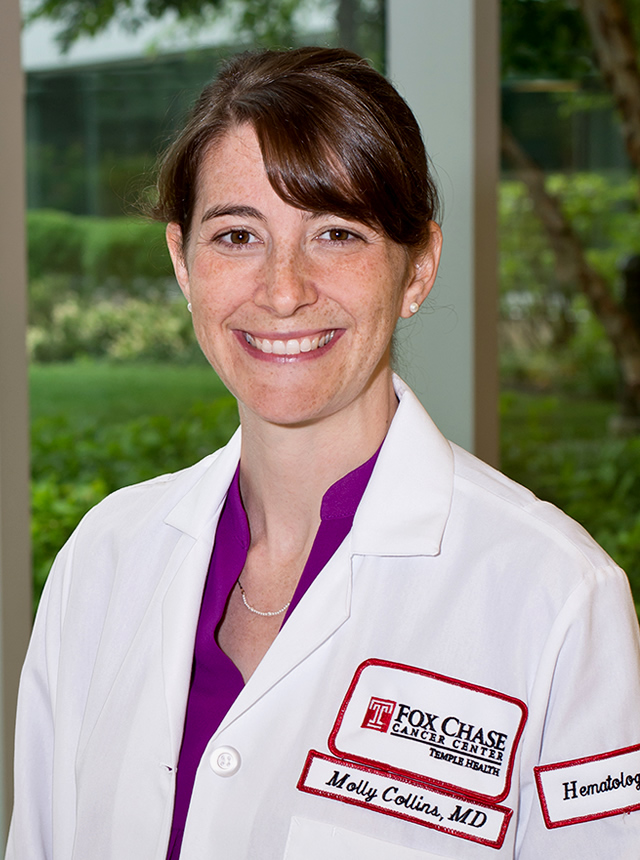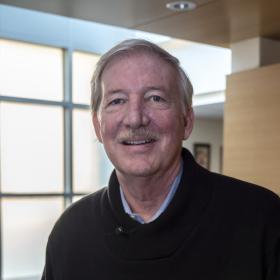Related Articles
00 / 00
-

-

A closeup photo of a person using both of their hands to gently clasp around another person's hand.
Important announcement concerning Temple Health and Keystone First. Our provider agreement with Keystone First, is scheduled to end on July 31st. Learn about your options to continue receiving care at Temple Health.

Adjunct Associate Professor, Department of Hematology/Oncology
Supportive and Palliative Care; Cancer Pain Management
Palliative Medicine; Patient-Physician Communication; Medical Education
Collins ME, Block SD, Arnold RM, Christakis NA. On the prospects for a blame-free medical culture. Social Science & Medicine. 2009; 69(9): 1287-1290.
Collins ME, Block SD, Arnold RM, Christakis NA. Responsibility and reflection: Understanding our responses to perceived errors. A response to Woodward, Lemer and Wu. Social Science & Medicine. 2009; 69(9): 1294-1295.
Sung AD, Collins ME, Smith, AK, Sanders AM, Quinn MA, Block SD, Arnold RM. Crying: Experiences and attitudes of third year medical students and interns. Teaching & Learning in Medicine. 2009; 21(3): 180-187.
Collins M, Crowley R, Karlawish JHT, Casarett DJ. Are depressed patients more likely to share health care decisions with others? Journal of Palliative Medicine. 2004; 7(4): 527-532.

I’m an active guy. I like to fish, play golf, travel, dance, and go off-roading. When something goes wrong, rather than sitting around feeling bad, I do anything in my power to remedy the situation. In 2013, this philosophy was severely tested when I was diagnosed with a rare cancer.
The following ratings and reviews are based on verified feedback collected from independently administered patient experience surveys. The ratings and comments submitted by patients reflect their own views and opinions. Patient identities are withheld to ensure confidentiality and privacy. Learn more about our Patient Experience Ratings.


A closeup photo of a person using both of their hands to gently clasp around another person's hand.
Patient comments